If you’re thinking about adding a hearth product to your home, you have a few options to consider. There are advantages and disadvantages to a fireplace, stove or an insert. Likewise, pros and cons with the fuel you decide to use. Let’s spend a few minutes discussing what hearth product will suit your needs and lifestyle.
FIRST, THINK ABOUT THE TYPE OF FUEL.
Probably the first thing to be decided is the type of fuel you want to burn. The convenience of gas, the ease of electricity or the independence and nostalgia associated with wood burning. Figure out what fuel is right for you and your family.
NEXT, CONSIDER SPACE REQUIREMENTS.
Many fireplaces are installed in homes at the time of construction. The question often comes up, “Can I add a fireplace to my family or living room, or maybe the master bedroom?” And the answer is, “You surely can!”
But, once you decide on the fuel type, the next decision is where you want to have a fireplace or stove installed. There are some important details to consider.
How much space do you have? For example, a gas fireplace will need space on your wall of approximately six feet wide by two feet deep, for it to ‘look proportionately correct’. The fireplace itself is smaller than these dimensions, but by the time the framing, the hearth work and finishing treatment is completed, six feet by two feet is roughly the real estate that many fireplaces will take up in your living room. The point is that you do not want the fireplace to look crammed into a small space.
A wood burning fireplace will take up about the same space as a gas model, but will require a deeper hearth. This is to protect the floor against sparks and embers popping from the fire.
Another point to keep in mind, especially when burning wood, are the required clearances to any combustibles. Each model will be a bit different, so be sure to check this important detail.
Generally speaking, the space requirements for a free-standing gas stove will be about three feet wide by two feet deep. Since no framing or finishing is required for a stove, the clearances are the primary concerns when installing a free-standing unit. Again, the clearances for wood burning equipment will be greater than a gas model. Be sure to check the clearance requirements for the sides, back and corners of a wood burning stove. The hearth requirements for a gas stove will be much less than for a woodburning stove.
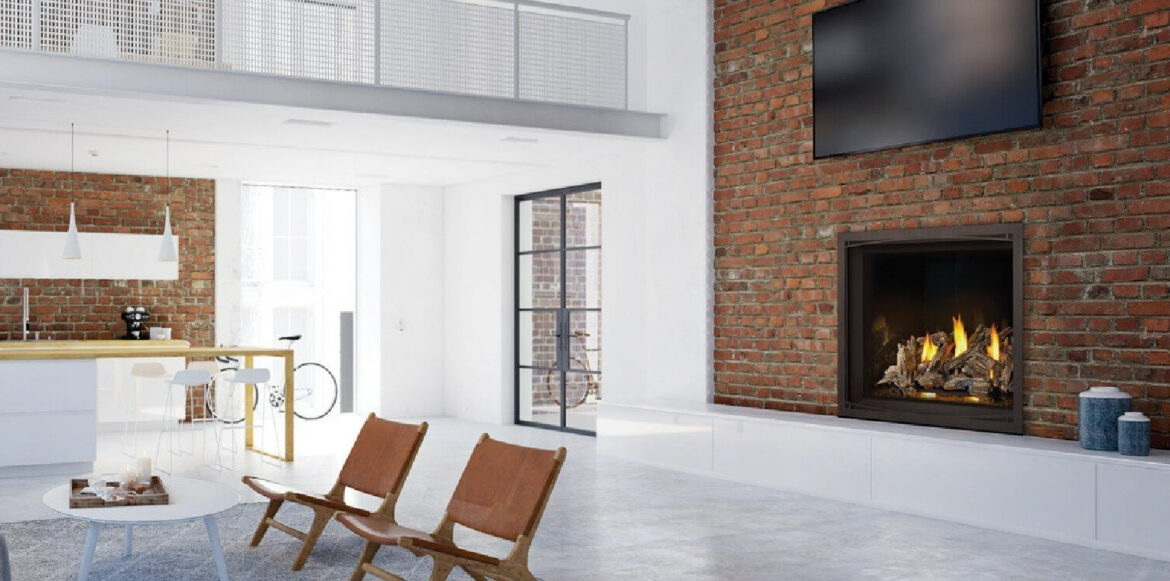
Gas Fireplace Napoleon Elevation
A VENT PIPE OR CHIMNEY IS REQUIRED.
When planning where your new equipment is going to be installed and how much space is going to be necessary, give some serious thought to how the vent pipe or chimney pipe might be routed.
When it comes to venting options, there is considerable versatility with gas burning appliances. Gas fireplaces can be vented horizontally through a sidewall or vertically through the roof. The vent pipe can be installed with 45° and 90° elbows. Each model will have its own ‘vent profile’ that specifies the number of elbows and length of straight pipe that’s allowed.
Wood burning fireplaces and free-standing stoves must use a chimney that is installed vertically above the roof. Chimney pipe can be offset at 15° or 30°. And remember with a chimney, it’s always best to try to keep it as straight as you can and inside the house for as long as possible. Exterior chimneys are the least desirable and most expensive to install.
Keep in mind, your WE LOVE FIRE expert can help evaluate options for locating equipment and any challenges with the routes for a chimney or vent pipe.
HOW ABOUT ELECTRIC?
Electric fireplaces and stoves are enjoying considerably popularity these days. An electric hearth product can literally be installed anywhere in your home. Clearance requirements are almost non-existent. Since no venting or chimney pipe is necessary, all that’s needed is an electric line.
Electric fireplaces can be hung on a wall or built into a wall. Some small electric stoves will measure approximately 20” wide x 12” deep. So, if you have a relatively tight space, you should be able to find an electric model that will work for your project.
To some people, the biggest negative with electric hearth products is the amount of heat from the appliance. But, depending on your situation, an electric fireplace or stove would be a great choice.
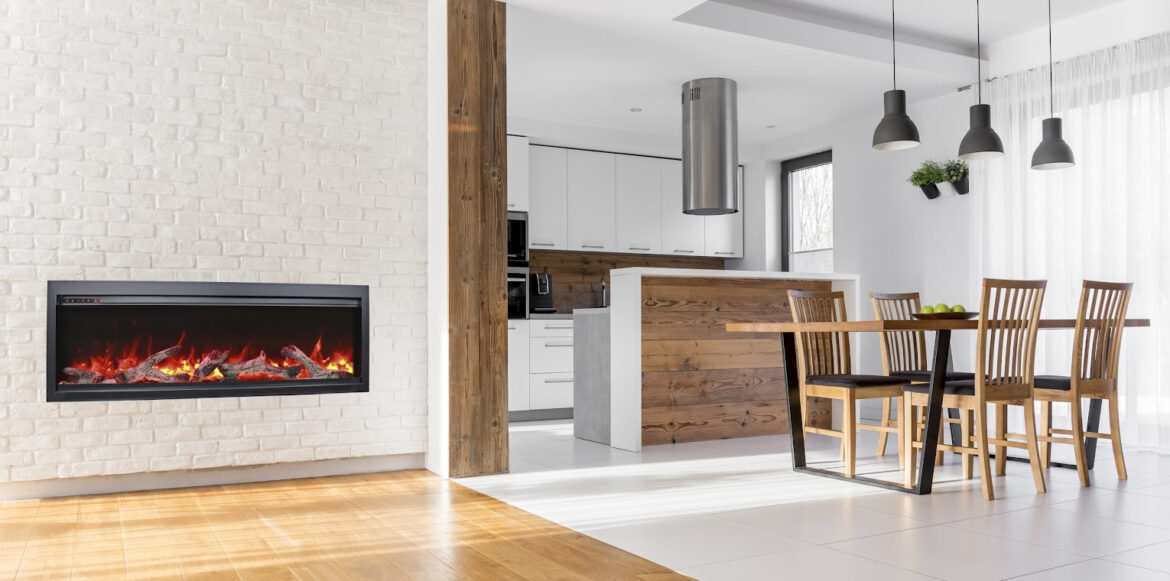
Amantii Electric Fireplace SYM-50
PELLET OPTIONS:
Pellet stoves are another option to consider. Pellet fuel is easy to handle and store and convenient to use. This type of equipment can be vented out a sidewall or vertically through the roof. The clearance requirements will be similar to a free-standing gas stove.
FIREPLACE INSERTS:
A fireplace insert is going to be the best option for updating an older, wood burning fireplace. Fuel options for inserts will be the same for fireplaces and stoves. Fireplace inserts are made to burn wood, gas, pellets or electricity.
WHAT ABOUT MAINTENANCE?
The final item you might want to consider when deciding on a hearth product that’s right for you: what maintenance is going to be needed?
Pellet equipment will require the most. Fine fly ash from the pellets must be removed on a regular basis. This normally means shutting the equipment down and thoroughly cleaning several specific parts of the stove. This may need to be done every few weeks during the heating season.
Cleaning the chimney and secondary or catalytic combustors is a must for burning cordwood. Code says inspect and clean your chimney, once a year. Clean re-burn systems more frequently, depending on use and the quality of the wood that’s burned.
Unless there are problems, a periodic cleaning and technical tune-up (maybe every 3 or 4 years) of your gas appliance is all that’s necessary.
And, keeping the glass clean on an electric hearth appliance is normally all that’s needed.
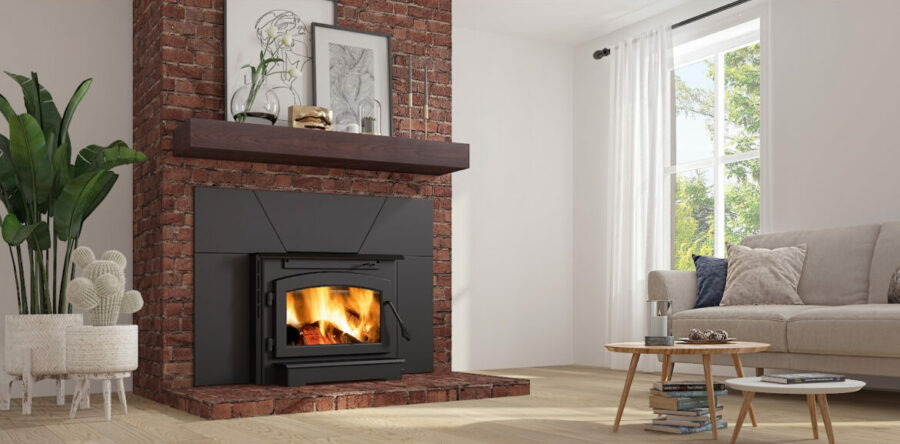

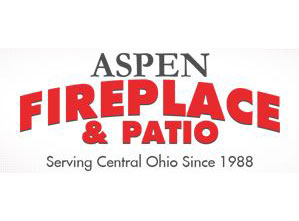

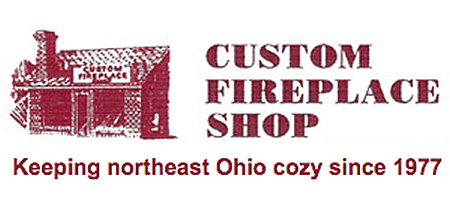



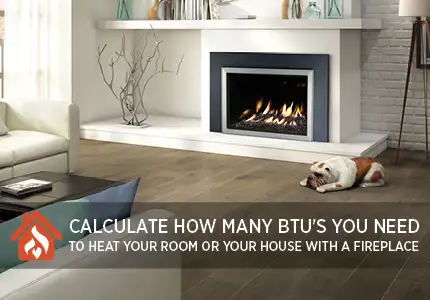

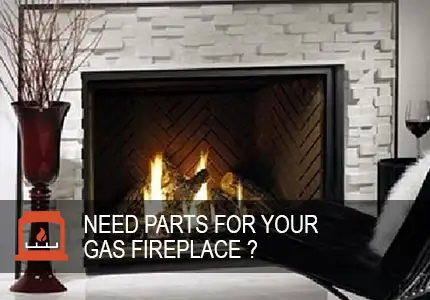
0 Responses